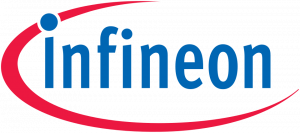At General Motors, our product teams are redefining mobility. Through a human-centered design process, we create vehicles and experiences that are designed not just to be seen, but to be felt. We’re turning today’s impossible into tomorrow’s standard —from breakthrough hardware and battery systems to intuitive design, intelligent software, and next-generation safety and entertainment features.
Every day, our products move millions of people as we aim to make driving safer, smarter, and more connected, shaping the future of transportation on a global scale.
The Role:
The Interior Comfort CAE/CFD Engineer will build, run, and interpret results from various thermal EHT models ranging in complexity from a single component to complex full vehicle systems.
Hybrid Work Position: This position does not require an employee to be on-site full-time to perform most effectively, however, would be expected to adhere to GM’s return to office policies which includes core in-office workdays Tuesday, Wednesday, and Thursday. As such the position requires an employee to be onsite an average of 3 days each week.
The Interior Comfort CAE/CFD Engineer will build, run, and interpret results from various thermal EHT models ranging in complexity from a single component to complex full vehicle systems.
The engineer will join a multi-disciplined team of engineers who perform airflow and thermal simulations of varying complexity to drive the design of vehicles. These would include air flow and thermal management around the vehicle, and specifically in the passenger compartment.
What You’ll Do
Cabin Comfort Simulation & Analysis
- Evaluate interior vehicle design for passenger comfort using Computational Fluid Dynamics (CFD).
- Conduct vehicle-level CFD simulations to optimize cabin thermal management.
- Assess cabin environment for equivalent homogeneous temperature (EHT) performance using 1D and 3D simulation tools.
Model Development & Integration
- Apply learned techniques to support 1D cabin models for integration into full vehicle thermal plants.
- Build simulation models for new vehicle programs based on content and functional objectives.
Cabin Comfort Calibration Simulation & Analysis
- Collaborate with Calibration teams to advance virtual calibration methods.
- Execute vehicle-level CFD simulations to support virtual calibration.
Data Interpretation & Communication
- Post-process and interpret simulation results to assess current performance and identify improvement opportunities.
- Communicate findings and recommendations to cross-functional teams.
Tool Proficiency & Technical Expertise
- Regularly utilize commercial CFD and 1D solvers in Windows, Linux/UNIX, and High-Performance Computing (HPC) environments.
- Tools may include ANSA, STAR-CCM+, GT-Power, MATLAB Simulink, and internal GM codes.
Collaboration & Ownership
- With general supervision, engage in virtual performance discussions through the broader thermal integration team across VDDV and vehicle development.
- Lead by example in immediate work area of collaboration.
Continuous Improvement & Innovation
- Identify opportunities to improve simulation processes to leadership.
- Apply learned technique to advance our proficiency or new method projects
Your Skills & Abilities (Required Qualifications)
- Bachelor’s degree in Mechanical, Aerospace, Electrical Engineering, Physics, or a related field, with coursework in Thermodynamics, Heat Transfer, and Fluid Mechanics.
- 3+ years of professional experience in the automotive industry, with a focus on thermal systems or cabin comfort.
- 2+ years of hands-on experience using commercial CFD solvers such as STAR-CCM+ or equivalent tools.
- Analytical and problem-solving capabilities, with a demonstrated ability to work with general guidance and drive technical solutions.
- Good understanding in CFD and thermal fluids methodologies, supported by academic and/or professional experience.
- Proficiency in Microsoft Office Suite (Excel, Word, PowerPoint), with the ability to create clear and impactful technical documentation and presentations.
What Can Give You a Competitive Advantage (Preferred Qualifications)
- Master’s or Ph.D. in Engineering, Physics, or a related technical discipline.
- 5+ years of professional experience in the automotive industry, with a focus on thermal systems or cabin comfort.
- 3+ years of experience using commercial CFD tools such as STAR-CCM+ or equivalent.
- Familiarity with Climatic Wind Tunnel testing, including instrumentation, measurement techniques, and data acquisition systems.
- Proficiency with 3D CAD tools including Teamcenter, VisMockup, or Unigraphics (NX).
- Base knowledge with scripting languages and automation techniques to streamline simulation workflows.
- Base knowledge of integrating Machine Learning (ML) or Artificial Intelligence (AI) into engineering processes.
- Expertise in modeling, simulation, and validation of open- and closed-loop systems in desktop and Hardware-in-the-Loop (HIL) environments.
- Understanding of 1D solvers, such as GT-Power.
- Interest or experience with Model-in-the-Loop (MiL) and Software-in-the-Loop (SiL) environments.
- Background in design and release of automotive thermal systems.
- Formal training in Design for Six Sigma (DFSS), with Green Belt or Black Belt certification.









